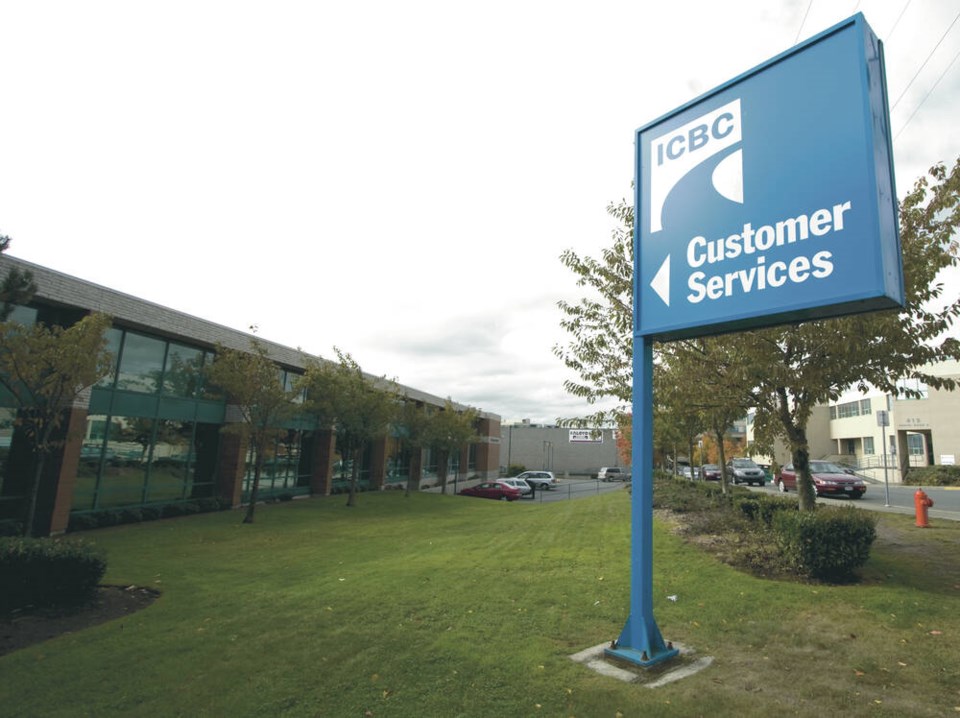A B.C. Supreme Court judge has dismissed ICBC’s attempt to reduce an injured driver’s $400,000 award by a third and ordered the public insurer to pay her upfront for physiotherapy, citing “egregious conduct” in how her claims for treatment were handled.
Patricia Taylor was awarded more than $400,000 in damages in 2021 after she was injured in a 2017 accident in which an ICBC-insured driver was ruled 100 per cent at fault, said the reasons for judgment.
But ICBC hasn’t yet fully paid Taylor, who is 65 and retired, and has ignored or delayed paying out claims for physio treatment, and “her health and quality of life have diminished,” Justice Catherine Murray wrote.
The delays in payment were “consistent with how ICBC has handled this claim. It waits until a lawyer or the court is involved before it fulfils its obligations,” she wrote.
Murray ordered ICBC instead to pay Taylor her full award so she can get therapy and “move forward with her life.”
After an insurance award, to prevent double recovery of benefits, ICBC can legally apply to reduce the award by the amount anyone injured in an accident is entitled to — which in most cases is $150,000 in benefits and expenses under the Insurance (Vehicle) Act.
ICBC had applied at a January hearing to reduce Taylor’s award by $137,000 in exchange for a promise to pay for physio and other future care costs on an as-needed basis under that act, according to the judgment.
But Murray said ICBC had repeatedly delayed or, in some cases, not paid Taylor’s claims, despite a written promise to the court in 2022 it would do so, and Taylor couldn’t trust ICBC to pay her.
ICBC admitted at the hearing it made mistakes. A claims review adviser, Steve Haaf, swore to the court in an affidavit that ICBC would “irrevocably, unequivocally and unconditionally agree to pay” any claims.
But Murray rejected that: “Based on the consistent conduct of ICBC toward Ms. Taylor since her accident, I am unable to presume that ICBC will conduct itself honourably moving forward.”
ICBC had also earlier tried and failed to have the portion of the award to Taylor for future care — $272,000 for physiotherapy, massage therapy, medication and assistive aids, and loss of homemaking capacity — reduced by the B.C. Appeal Court, Murray wrote.
The higher court found the original award to be “reasonable” and dismissed the appeal.
A 2023 Appeal Court decision ruled that when ICBC cuts an award in exchange for a promise to pay for treatment later as needed, the injured person is “at risk of being short-changed” if ICBC ends up not paying, Murray wrote.
The relevant section of the Insurance (Vehicle) Act “was not intended to permit ICBC representatives to ignore or revise decisions of the court by refusing to fulfil court-ordered rewards or to frustrate them,” wrote Murray.
For instance, despite a sworn affidavit in 2022 by ICBC claims review adviser Dave Forster guaranteeing Taylor would be reimbursed, ICBC weeks later asked for a doctor’s note and ignored her submitted claims until she hired a lawyer, at an added expense.
ICBC also denied her the housekeeping expenses Murray had included in the award, wrongly claiming she had missed a deadline.
“We are reviewing this judgment and circumstances described within it, before deciding what steps we may take,” said ICBC spokesman Greg Harper.



